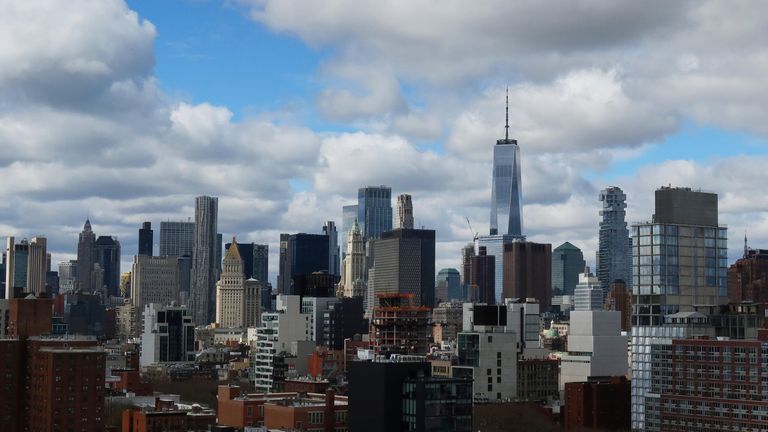An earthquake shook the densely populated New York City metropolitan area Friday morning, according to the US Geological Survey.
Residents across the Northeast reported rumbling in a region where people are unaccustomed to feeling the ground move.
The agency reported a quake at around 10 a.m. local time.
The 4.8 magnitude quake hit Lebanon, New Jersey, about 45 miles west of New York City and 50 miles north of Philadelphia.
USGS figures indicated tremors might have been felt by more than 42 million people.
New York City’s emergency notification system said in a social media post more than 30 minutes after the quake that it had no reports of damage or injuries in the city.
The Fire Department of New York said on social media about an hour after the quake that it was “responding to calls and evaluating structural stability” but that there are “no major incidents at this time.”
People in Baltimore, Philadelphia, Connecticut and other areas of the Northeast reported shaking.
Tremors lasting for several seconds were felt over 200 miles away near the Massachusetts-New Hampshire border.
“The building shook and I thought that the ceiling above me was going to collapse,” said Attorney Finn Dusenbery, who was in a law office in midtown Manhattan.
“I did think that maybe the building was going to fall down for a second, and I wanted to get out of the building when I felt that.”
The White House said in a statement that President Joe Biden had been briefed on the earthquake and was “in touch with federal, state, and local officials as we learn more.”
New York Governor Kathy Hochul posted on X that the quake was felt throughout the state.
“My team is assessing impacts and any damage that may have occurred, and we will update the public throughout the day,” Hochul said.
The shaking stirred memories of the 23 August 2011 earthquake that jolted tens of millions of people from Georgia to Canada.
Registering a magnitude of 5.8, it was the strongest quake to hit the East Coast since World War II. The epicentre was in Virginia.
Earthquakes are less common on this side of the US because the East Coast does not lie on a boundary of tectonic plates. But East Coast quakes can still pack a punch – its rocks are better at spreading earthquake energy across far distances.
“If we had the same magnitude quake in California, it probably wouldn’t be felt nearly as far away,” said USGS geophysicist Paul Caruso. Euronews


